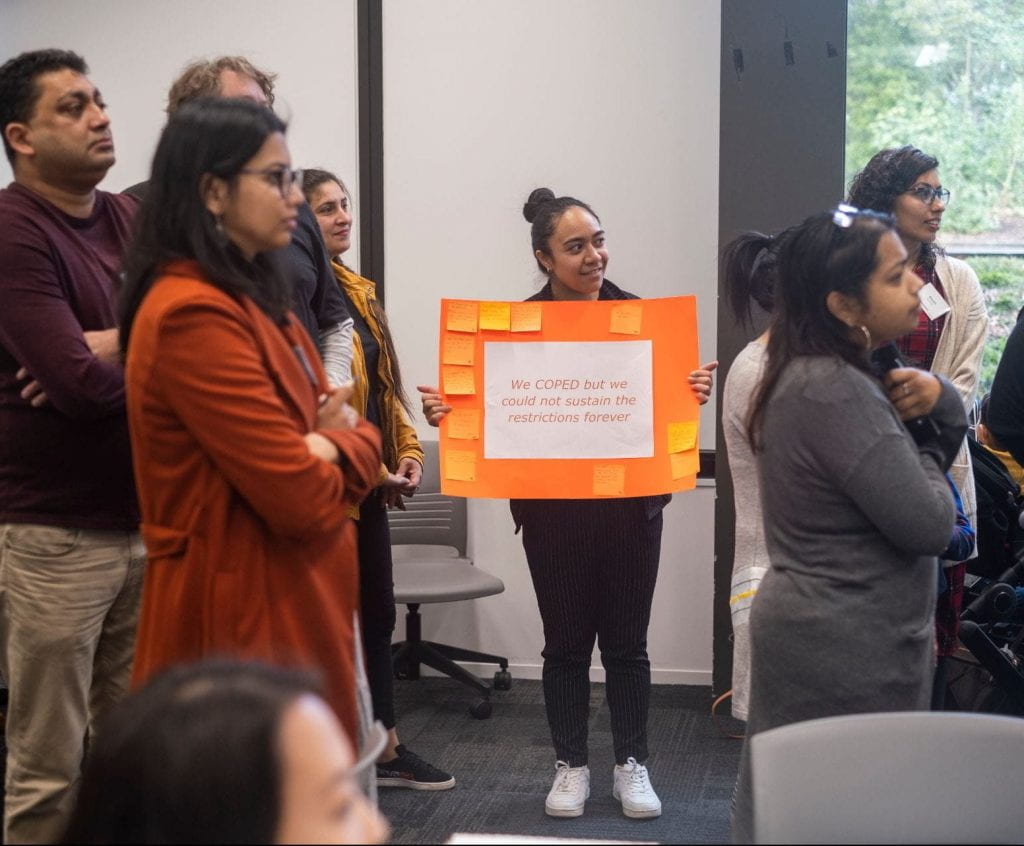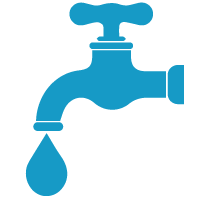Our MBIE Endeavour Fund Smart Ideas project consists of two parts:
Engaging with communities
The Watercare project
Engaging with communities
Understanding current practices and
experiences of public engagement
We are asking what they think about current forms of citizen engagement: what works? What does not? How can we ensure that all of the voices are heard? Should we tailor forms of engagement to suit different groups? How can we diagnose different kinds of barriers that prevent individuals and groups from participation? Can engagements exist if they’re not based on longstanding relationships?
Here are the kinds of things we hear from our project participants:
Our work with Watercare
Complex conversations about the future
of Auckland’s precious water supply
The problem
Tāmaki Makaurau Auckland is a thriving city with a diverse and growing population. Its unique geography and natural environment make it a desirable place to live and work. But this also creates challenges for further growth and infrastructure development.
Climate change is affecting how we live, and how we think about the future. Auckland’s recent drought and water shortage have made it clear that we need resilient water and wastewater systems. This is especially important as the city continues to grow. How do we make decisions on which path to take and which investments to make so that we can secure a vibrant future for all Aucklanders?
Watercare is owned by Aucklanders and must make long-term decisions on everyone’s behalf. We need to decide what our next source of water should be. With water, people often believe the solutions are simple. But each different option is complex and there are trade-offs that we need to understand. If a wide variety of Aucklanders get good information, understand each other, and come together around a shared decision, Watercare would be wise to take this advice.
We want to solve this difficult problem together.

Our approach
In July and August 2021, we held four workshops across Auckland: in West, Central and South Auckland, and the North Shore. Using Watercare customer database we invited several thousand citizens to participate. Out of the several hundred who expressed their interest, we selected four groups of 30-35 whose demographic composition mirrored the makeup of our city. We did not expect participants to have a lot of knowledge about the water system. Instead, we looked for a range of lived experiences.
Over the course of a morning, the groups learnt together about the pressures on the urban water supply, the future scenarios, other people’s experiences and viewpoints on Auckland’s water. They heard about the four main options that the Watercare identified as environmentally, technically and economically possible. To hear more about how the workshops went and what we want to do next, listen to this podcast.
If you would like the full details outlining how these workshops were designed and conducted, we welcome you to contact us for a copy of the report.
Decision-makers can’t help but hear from the loudest people who insist on being heard. And that’s good. Yet Watercare belongs to all the people of Auckland, and we are trusted to make decisions on behalf of everybody.
We’ve always cared deeply about our customers, but I believe this process will help us getting even closer by engaging with Aucklanders, the loud ones and the not so loud ones, in a way that allows them to directly influence decisions on our city’s water future.

